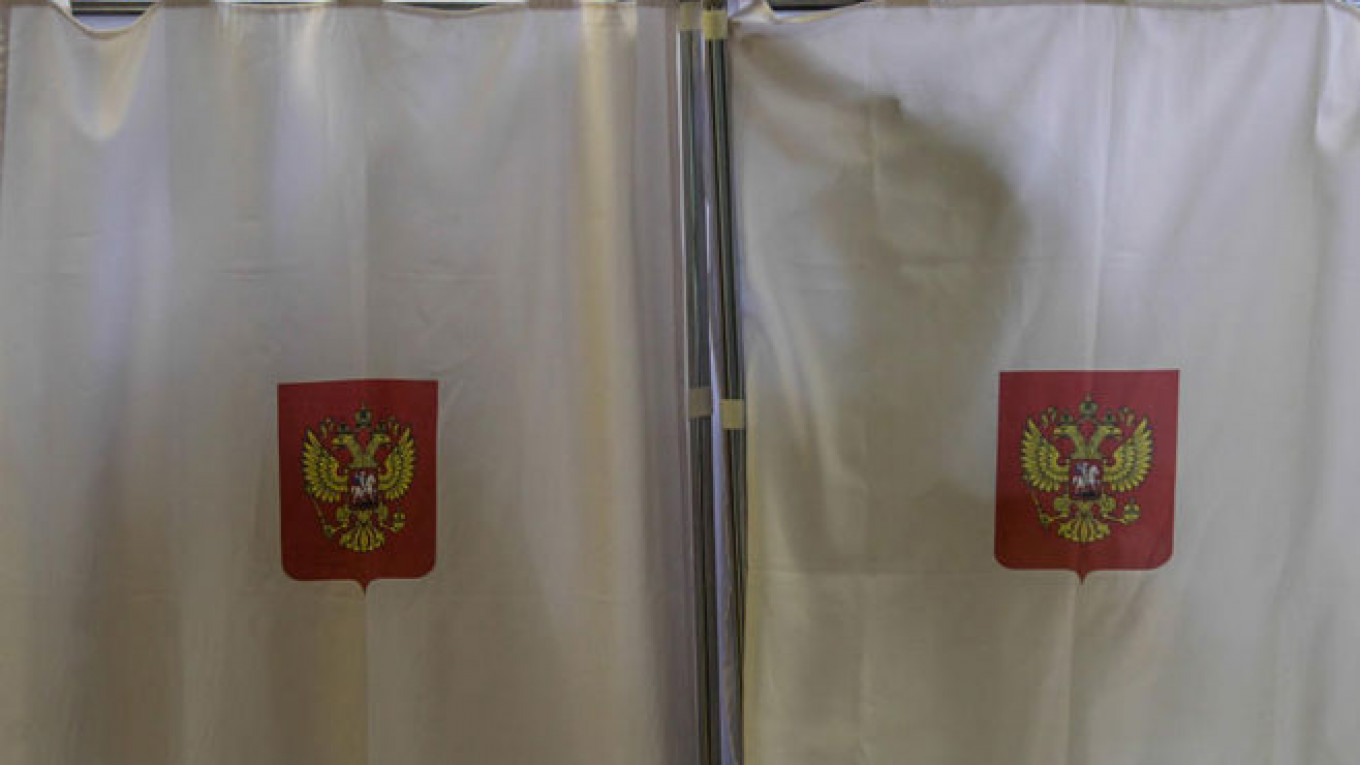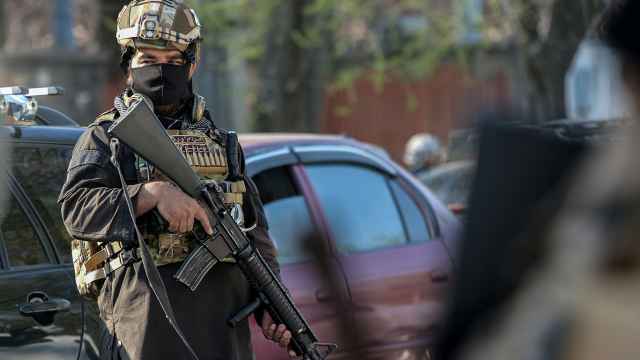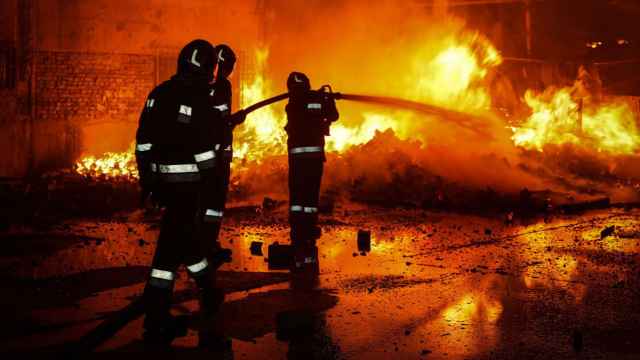Lawmakers from pro-Kremlin parties United Russia and LDPR have submitted to the State Duma a bill abolishing popular elections of mayors and city councils in major cities.
Analysts said the legislation represents an attempt to increase the dependence of municipal authorities on the Kremlin and effectively liquidate their self-government. Some observers also interpreted the proposed measure as part of a Kremlin effort to consolidate power in reaction to the political crisis in neighboring Ukraine.
The reform would apply to 67 large cities, including 56 regional capitals. The mayors of affected cities would be elected by city councils from among their members, while the city councils would consist of deputies delegated by newly created assemblies of city districts.
City governments would be headed by city managers — executives appointed by commissions, half of which would be chosen by governors and the other half by city councils.
The bill's sponsors argued that the bill would help fulfill an order by President Vladimir Putin to establish closer links between the authorities and population by creating district assemblies. "We can decrease the number of voters represented by a single deputy," United Russia Deputy Vyacheslav Timchenko told Kommersant.
But Stanislav Belkovsky, head of the National Strategy Institute think tank, said by phone that he did not see a rational justification for the move because the Kremlin already controlled municipal authorities by manipulating mayoral elections.
"Putin has gone crazy. It is a kick in the teeth of the Russian people," he said, referring to the plan to abolish popular elections of mayors and city councils. "The people will tolerate [such policies] but only up to a certain point."
Belkovsky also said that the bill was a reaction to the Ukrainian revolution, with the Kremlin trying to prevent similar events in Russia by "tightening the screws."
"When a nation similar to Russia takes its destiny into its own hands, the Kremlin starts going nuts," he said.
The bid to abolish popular elections comes after some opposition candidates achieved high results in recent mayoral races.
In September, anti-corruption crusader Alexei Navalny came in second in the Moscow mayoral election, receiving 27 percent of the vote. The new bill would not apply to the country's capital because its mayors are elected in the same way as governors. In Yekaterinburg, voters elected Yevgeny Roizman, a leader of the Civil Platform party, as the city's mayor.
The proposed legislation also follows other similar measures on the local level. Since 2003, most regional centers and many other cities across Russia have introduced the institution of city managers — appointed executives who have partially eclipsed the power of elected mayors. Most of these cities have taken a step further by abolishing popular mayoral elections.
The drive to introduce city managers and abolish popular mayoral elections has been seen by analysts as part of the Kremlin's efforts to bring all authorities, including lawmakers, courts and governors, under its control.
Another measure proposed Wednesday that was interpreted by some observers as part of this trend was the introduction in the Duma of a bill seeking to authorize the president to appoint 10 percent of representatives in the Federation Council, the parliament's upper house. Currently, all members of the Federation Council are appointed by governors and regional legislatures.
The moves come amid what some analysts describe as the Putin regime's transformation into a more authoritarian model as it becomes more isolated internationally, partly as a result of its move to take control of Ukraine's Crimea peninsula. According to this interpretation, the Kremlin is becoming less concerned with foreigners' reactions to Russia's domestic developments and therefore has a freer hand in consolidating its grip on power.
Contact the author at o.sukhov@imedia.ru
A Message from The Moscow Times:
Dear readers,
We are facing unprecedented challenges. Russia's Prosecutor General's Office has designated The Moscow Times as an "undesirable" organization, criminalizing our work and putting our staff at risk of prosecution. This follows our earlier unjust labeling as a "foreign agent."
These actions are direct attempts to silence independent journalism in Russia. The authorities claim our work "discredits the decisions of the Russian leadership." We see things differently: we strive to provide accurate, unbiased reporting on Russia.
We, the journalists of The Moscow Times, refuse to be silenced. But to continue our work, we need your help.
Your support, no matter how small, makes a world of difference. If you can, please support us monthly starting from just $2. It's quick to set up, and every contribution makes a significant impact.
By supporting The Moscow Times, you're defending open, independent journalism in the face of repression. Thank you for standing with us.
Remind me later.






